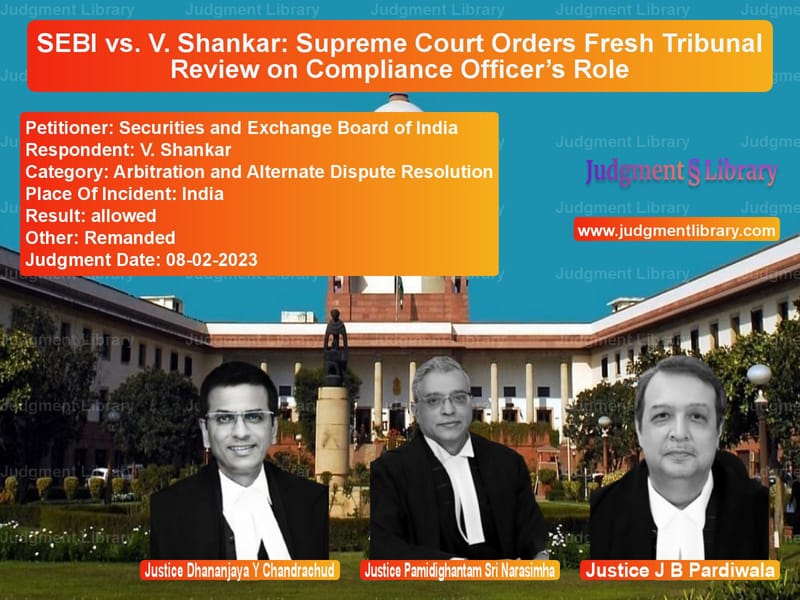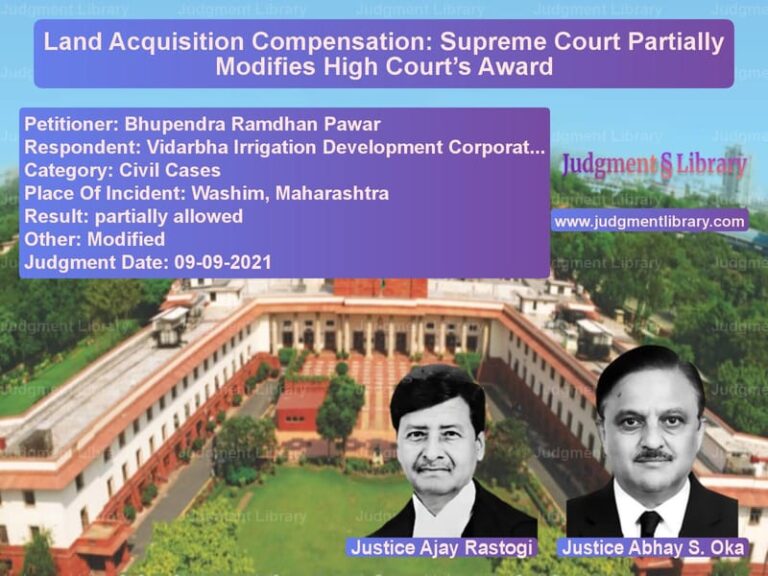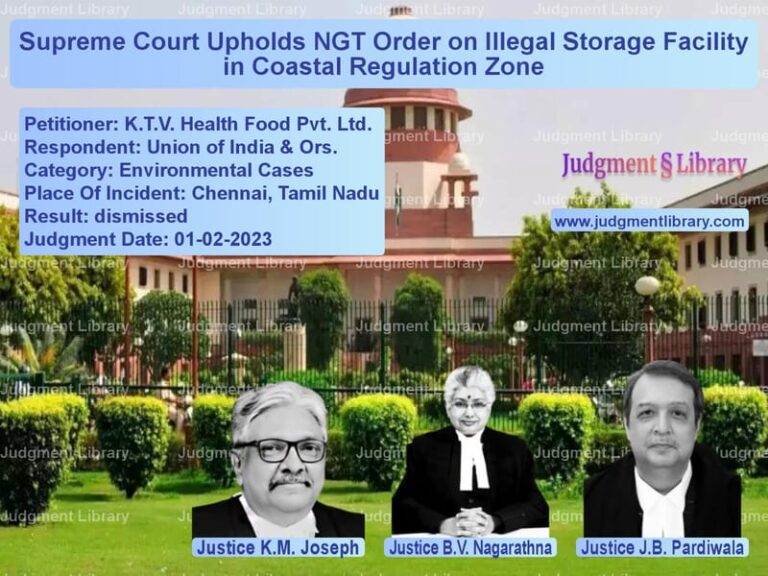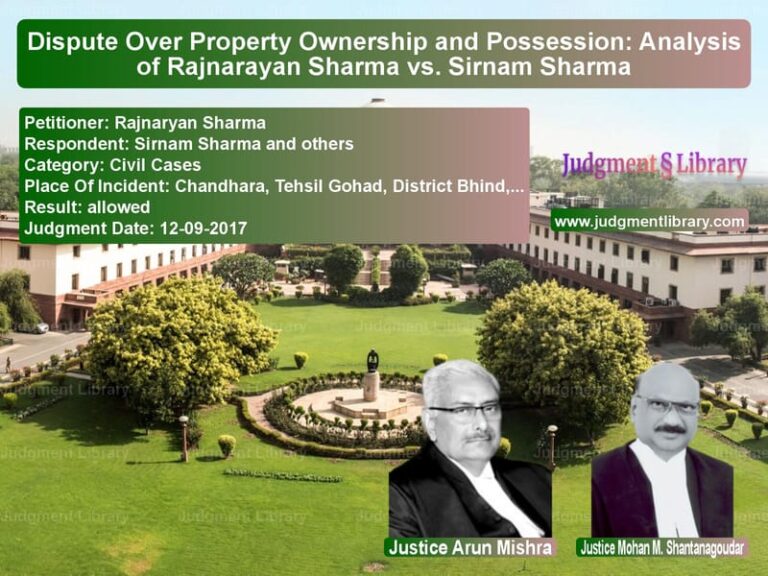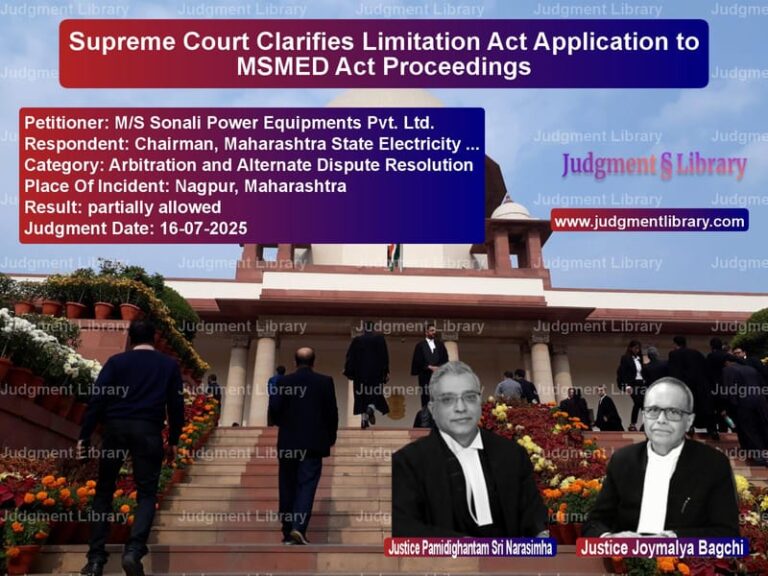SEBI vs. V. Shankar: Supreme Court Orders Fresh Tribunal Review on Compliance Officer’s Role
The Supreme Court of India recently ruled on an appeal filed by the Securities and Exchange Board of India (SEBI) against V. Shankar, a former Company Secretary of Deccan Chronicle Holdings Limited (DCHL). This case revolved around the imposition of penalties on Shankar for his role in an alleged violation of buyback regulations and the responsibilities of a compliance officer. The Court’s decision has significant implications for corporate governance and the obligations of compliance officers in listed companies.
Background of the Case
SEBI had imposed a penalty of Rs 10 lakh on V. Shankar for violating provisions of the Companies Act, 1956, and the SEBI (Prohibition of Fraudulent and Unfair Trade Practices relating to the Securities Market) Regulations, 2003 (PFUTP Regulations). This penalty was challenged before the Securities Appellate Tribunal (SAT), which set aside SEBI’s order.
The SAT ruled in favor of Shankar, stating that as a Company Secretary, his role was limited to authenticating the contents of the company’s balance sheet and offer documents. It held that the primary responsibility for regulatory compliance rested with the Board of Directors.
SEBI’s Arguments
SEBI, represented by senior counsel Mr. Arvind Datar, contested SAT’s ruling and argued:
- The Tribunal’s interpretation of Regulation 19(3) of the SEBI (Buyback of Securities) Regulations, 1998, was erroneous.
- The obligation to ensure compliance with the buyback regulations was also on the Compliance Officer, not just on the Board of Directors.
- Under Section 215 of the Companies Act, 1956, the balance sheet must be approved by the Board and signed before being submitted for audit.
- The authentication of documents by the Company Secretary involved more than just signing them—it required ensuring legal compliance.
- Shankar failed in his duty as a compliance officer by allowing a buyback offer that violated statutory provisions.
Respondent’s Defense
On the other hand, counsel for V. Shankar, Mr. Somasekhar Sundaresan, argued:
- The failure to comply with statutory requirements was a lapse on the part of the Board of Directors, not the Company Secretary.
- The primary responsibility of the Company Secretary was limited to document authentication, not verifying the company’s financial and regulatory compliance.
- The Tribunal correctly ruled that the respondent could not be held personally liable for the Board’s actions.
Supreme Court’s Judgment
The Supreme Court found a critical error in SAT’s ruling. It emphasized that Regulation 19(3) of the SEBI (Buyback of Securities) Regulations, 1998, clearly states that the compliance officer has two key responsibilities:
- Ensuring compliance with buyback regulations.
- Redressing grievances of investors.
The Tribunal had mistakenly interpreted this regulation as limiting the compliance officer’s role only to handling investor grievances. The Supreme Court noted:
“The crucial point which has been missed by the Tribunal is that the compliance officer is also required to ensure compliance with the buyback regulations.”
Thus, the Court ruled that the Tribunal’s interpretation was legally flawed and needed reconsideration.
Final Decision
The Supreme Court set aside SAT’s order and remanded the case back for fresh adjudication. It instructed the Tribunal to reconsider the case, taking into account the correct interpretation of Regulation 19(3). The Court also directed the Tribunal to expedite its decision-making process and deliver a ruling within six months.
Implications of the Ruling
This decision clarifies the compliance obligations of Company Secretaries and compliance officers in listed companies. It reinforces the notion that their responsibilities extend beyond document authentication and include ensuring regulatory compliance. This case also serves as a precedent emphasizing the duty of compliance officers to prevent misleading corporate actions that could harm investors.
Petitioner Name: Securities and Exchange Board of India.Respondent Name: V. Shankar.Judgment By: Justice Dhananjaya Y Chandrachud, Justice Pamidighantam Sri Narasimha, Justice J B Pardiwala.Place Of Incident: India.Judgment Date: 08-02-2023.
Don’t miss out on the full details! Download the complete judgment in PDF format below and gain valuable insights instantly!
Download Judgment: securities-and-excha-vs-v.-shankar-supreme-court-of-india-judgment-dated-08-02-2023.pdf
Directly Download Judgment: Directly download this Judgment
See all petitions in Arbitration Awards
See all petitions in Enforcement of Awards
See all petitions in Dispute Resolution Mechanisms
See all petitions in Corporate Compliance
See all petitions in Company Law
See all petitions in Judgment by Dhananjaya Y Chandrachud
See all petitions in Judgment by P.S. Narasimha
See all petitions in Judgment by J.B. Pardiwala
See all petitions in allowed
See all petitions in Remanded
See all petitions in supreme court of India judgments February 2023
See all petitions in 2023 judgments
See all posts in Arbitration and Alternate Dispute Resolution Category
See all allowed petitions in Arbitration and Alternate Dispute Resolution Category
See all Dismissed petitions in Arbitration and Alternate Dispute Resolution Category
See all partially allowed petitions in Arbitration and Alternate Dispute Resolution Category

